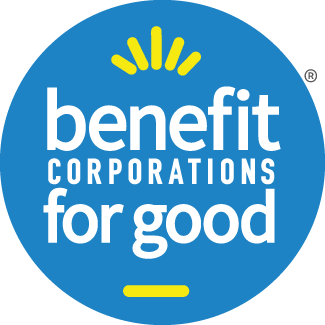How Two Wine Afficionados Uncorked Beaverton’s Sustainable Wine Bar
Meet Angela and David Anderson, co-owners of Syndicate Wine Bar , who share their love of wine and sustainability with people from all over the State of Oregon.
Angela and David Anderson know a thing or two about grape juice for adults. You see, the two of them have been involved in the Oregon wine business enjoying noteworthy pinot noirs and other delectable wines from the region. They’ve also helped design engaging websites for some the state’s finest wineries. All while becoming one of the first Oregon Benefit Companies believing in and practicing the Triple Bottom Line of People, Planet and Profit.
When they founded Syndicate Wine Bar in the second half of 2019, they brought that passion and sustainable leadership to their wonderful wine bar on First Street in Old Town Beaverton. Now they are creating some of their own vintages to help local community causes such as the Patricia Reser Center for the Arts as well as offering more than 240 other carefully selected wines from around the world that will make even the most particular wine palette happy.
Recently, we interviewed Angela about becoming a certified Oregon Benefit Company. Here’s what she had to say about it, the motivation for doing it and why it was right for Syndicate Wine Bar.
1. What motivated you to become a Benefit Company?
We felt that this was the only option for us as a purpose driven company. All aspects of the Benefit Company philosophy are a direct reflection of who we are as a company and what we find important to our business.
2. Was it difficult getting internal support for moving toward this model?
No. My husband and I (owners) also owned another company that was an Oregon Benefit Company so we had some experience with this business model. Our team has also been with us for a long time, so they were familiar with the principles, adhering to them even before we became a certified Benefit Company.
3. How long did it take you to officially become a Benefit Company?
Not long at all. Once we completed the “Benefit Corporations for Good” online questionnaire, co-founders Tom and Mary Anne got back to us within the week for our assessment results.
4. Have you seen any change in culture since you became a Benefit Company?
No, rather it reinforced the values our team believes in all things that we do. We want to make sure we are never losing the vision of balancing people, planet, and profit.
5. Have you experienced any positive outcomes since becoming a Benefit Company?
Being a Benefit Company in a district that is unfamiliar has given us a great opportunity to educate and lead through a different way. Our undeniable stance on community building in times of strife have propelled us forward and helped us gain customers looking for something more than the average business.
6. Would you recommend this business model to others? Why or why not?
Absolutely. Right now, especially as consumers are extremely selective with the merchants they choose to give their dollars to. They want to know about a company’s ethics, principles, and socially conscious values. They want more than capitalism. They want a small business they can relate to that is personable, transparent, and passionate.
7. What is the most important trait to have as a conscientious leader of a Benefit Company?
Transparency. We feel that by trying and failing, there is a learning process. One thing we all have in common is that we are all imperfect beings. By being transparent in our learning process, our mistakes, and our efforts, we are showing our customers that it’s okay to fail. Through failure and mistakes, we push ourselves for resiliency and growth. Growth is never ending.
8. What lessons have you learned in the process?
Our biggest lesson in the last year as a Benefit Company is that we can’t do everything all the time. We have to take time for ourselves. It isn’t all about the business. Though we stand by the principles of balancing people, planet, and profit in our business, we also must live by these standards in our own lives by balancing ourselves and taking time away to recharge. As small business owners, we want to do everything we can to grow the business and provide an establishment that our customers feel welcome and respected. Running ourselves and health down for the sake of the business was the hardest lesson to learn this last year and it came at a huge cost.
9. Is being a Benefit Company part of your current brand message?
We don’t state it enough with the exact words “Benefit Company” but we make sure that our messaging always balances the principles for which we were formed.
10. What is the single best reason you'd give for another company or peer to become a Benefit Company?
It is the right thing to do for your community! Becoming a Benefit Company is an outward sign to yourselves, your employees, and your community that you believe in a bigger picture in how you run your business. It isn’t all about profit and it isn’t all about community. It is about the combination of people, planet, and profit and how they can all come together in a cohesive mix to create a business that reaches higher, stands taller, and strives passionately.
You can learn more about Syndicate Wine Bar here.
If you want to know more about why your business should become a benefit corporation, watch this.
Learn more about the 6 simple steps to becoming a benefit company or benefit corporation here.
~benefitcorporationsforgood.com~

